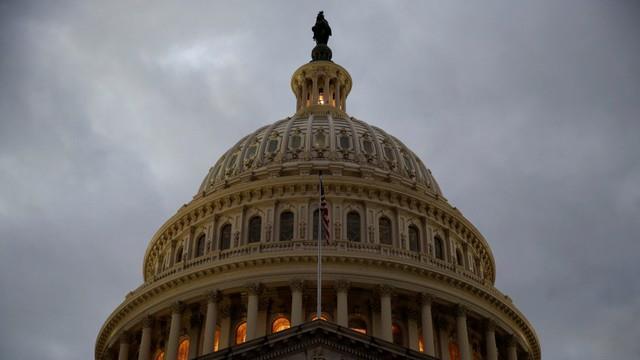Tax cuts 2.0: What you need to know
Republicans in the House Ways and Means Committee voted this week to advance a three-part legislative effort to usher in another round of reforms to the U.S. tax code.
The introduction of the package comes ahead of the midterm elections, where House Republicans are hoping to maintain a majority.
In the wake of implementation of the tax overhaul, more than 430 companies have announced pay raises, bonuses or 401(k) hikes, benefiting more than 4 million Americans, according to the White House.
But the administration says it can do more. Here’s what you need to know about the trio of bills Republicans are hoping to pass:
Protecting Family and Small Business Tax Cuts Act
One bill would make some parts of the initial round of tax cuts permanent.
The Tax Cuts and Jobs Act implemented a permanent 15 percentage-point reduction in the corporate tax rate, to 21 percent, but changes made on the individual side of the tax code are set to expire after 2025. The reason these reforms were not made permanent in the first place is because Republicans used the fast-track process known as reconciliation to pass them.
In addition to the new tax brackets, provisions, including the $10,000 cap on state and local tax deductions and the doubled standard deduction, would also be extended.
House Ways and Means Committee Chair Rep. Kevin Brady has said that making the tax cuts for families and small businesses permanent is “important for growth and certainty.”
The measure passed a vote in the House Ways and Means Committee, 21 to 15, this week, and is expected to be put up for a vote before the full chamber early next month.
The Joint Committee on Taxation estimated that making these measures permanent would cost the government $630 billion in federal revenue over the next decade.
The Family Savings Act
A second bill aims to help Americans save more.
One of the provisions under this branch of the bill would eliminate the contribution age limit for IRA accounts, which is currently 70.5. It would also remove the required minimum distribution withdrawals for those with less than $50,000 in their accounts and would allow for penalty-free withdrawals for certain child-care related costs.
Republicans are also looking to make it easier for small businesses to offer retirement plans by letting them band together to offer joint plans – an effort to reduce costs.
The bill encourages the use of Universal Savings Accounts. Contributions into a Universal Savings Account would be taxed, but earnings would grow tax-free and would be easier to withdraw than a traditional 401(k) or other retirement account.
A May report from Northwestern Mutual found that 21 percent of Americans have no retirement savings at all, while two-thirds of people with a savings account or plan are certain their funds will run dry too soon.
“We are looking at ways where it’s easier for families to save earlier in life and more over time, whether it’s for health care or for retirement,” Brady has said. “We think America is not a nation of savers; we want it to be.”
The Ways and Means Committee passed the savings measure 21 to 14 on Thursday.
The American Innovation Act
The final part of the package looks to expand tax breaks for startup businesses. Businesses that qualify could deduct up to $20,000 in expenses.
“We are helping entrepreneurs grow,” Brady said in a statement. “The American Innovation Act will increase innovation by helping new entrepreneurs move from the kitchen table to Main Street and beyond. The country that wins the innovation race wins the future, and it’s time for our tax code to help us get there.”




















